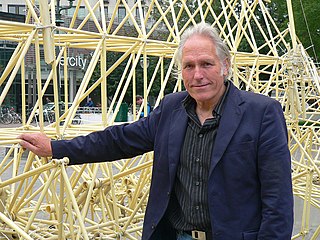A Quote by Chanda Kochhar
Even if it does not become cashless economy, it will become a less cash economy, and I think that itself is going to be a good and big achievement, and I think we are, as a country, gone through many of large changes, and ICICI has been a leader in many of them.
Related Quotes
I do think that saving the economy was a pretty big deal. We did a lot of stuff early that ended up having an impact. I believe that the work we've done in moving our energy future in a cleaner direction is going to stick even if some of the individual steps that we took are reversed by future administrations. I think that it's embedded itself in the economy.
Doing the same things you did when the economy was good is not good enough. You will have to put more coals on the fire in a poor economy to get the same heat you received in a good economy. You must give more energy, more thought, more service, and get into positive thinking material more frequently. Become more selective about who you spend time with. Love a little more, hate a little less. Think about it. You can progressively move on an upward path toward any goal. The choice is yours as to who or what controls you!
Today it's fashionable to talk about the New Economy, or the Information Economy, or the Knowledge Economy. But when I think about the imperatives of this market, I view today's economy as the Value Economy. Adding value has become more than just a sound business principle; it is both the common denominator and the competitive edge.
Instead of the primitive raw material economy, we will create a smart economy generating unique knowledge, new useful things and technologies. Instead of the archaic society, in which the leaders think and make decisions for everyone, we will become a country of intelligent, free and responsible people.
I think what grows the economy is when you get that tax credit that we put in place for your kids going to college. I think that grows the economy. I think what grows the economy is when we make sure small businesses are getting a tax credit for hiring veterans who fought for our country. That grows our economy.
The times in which we're currently living unfortunately, our great leader [George W. Bush] is such a disaster and the entire country is in disastrous shape because of him. It's very frightening, actually, to think that this country has become what it's become and that so many people voted for a man like that. It's terrifying.
I think the reason that the Trump economic agenda is beneficial is, he is doing the right things. He wants to see growth, he wants to see to lower taxes, he wants to see this cash pile sitting outside the US return to the US. All of these things I think will be good for the US economy, and as I've said, if the US economy grows, the global economy benefits hugely.
I think the Netherlands will become one big city at a point. It is inevitable when you live in a country with so many people. You cannot afford to leave nature as it is. Some people believe that the dunes should be left in their original state, but I think it's strange to let things become how they were 500 years ago.
There are many ways to create economic suicide on a national level. The major way through history has been through indebting the economy. Debt always expands to reach a point where it cannot be paid by a large swathe of the economy. This is the point where austerity is imposed and ownership of wealth polarizes between the One Percent and the 99 Percent.
We can't have extraordinary dynamism, innovation, and change in the economy and expect to have predictability and stability in our personal lives. It's not as if there are these big, giant institutions existing between us and the economy. In fact, these institutions have become tissue-thin. There is no mediation anymore. We are the economy; the economy is us.
You have had many sadnesses, large ones, which passed. ... But please, ask yourself whether these large sadnesses haven't rather gone right through you [that is, passed through you]. Perhaps many things inside you have been transformed; perhaps somewhere, someplace deep inside your being, you have undergone important changes while you were sad.
This new economy that's just emerged has a new central economic actor. It's not the worker, the person who produces, nor the person who consumes, the purchaser. It's a new actor that does both things at the same time, call them a creator. They both create and consume in the same single act, and we're just beginning to see the shape of this new economy and it changes not just the economy itself, it's going to change the whole nature of the work relationship.
I think capitalism will not disappear, but it's going to increasingly not be the exclusive arbiter of economic life. It's going to have to find value in interacting with the sharing economy on many levels. And this hybrid system that's already emerging among millennials is going to be a mature system where, by midcentury, part of the day will be in the capitalist market, part of the day in the sharing economy, depending on your marginal costs.
I tend to go with things people need. Obviously with the barbershop, people will need haircuts regardless of the economy. In a down economy, I choose businesses that don't require a lot of start-up cash or a cash injection on a regular basis. They might need some initially, but not often after. Rental of properties is a good business in a down economy as people struggle with mortgages.

































